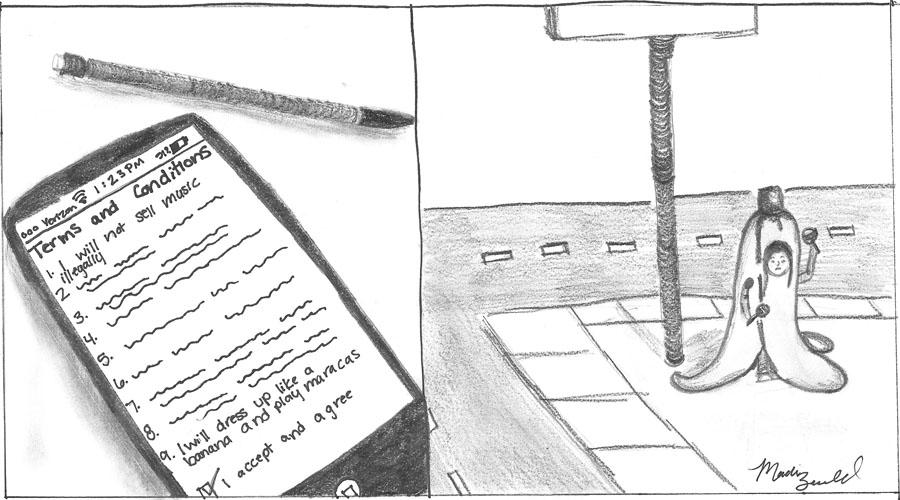Editorial: Terms and Conditions may apply
Students sign the handbooks, but do they know what they are signing for?
We’ve all done it, checked that little box saying, “I’ve read the Terms and Conditions,” even though we took one look and thought it too long to read or never even looked at all. This year, students were told to sign the backs of their student handbooks to indicate that they read and understood the changes from the previous year.
Despite having signed the handbooks, many students hadn’t actually read them. In a student poll, only 23 percent of the students claimed to have read the handbook at all. Even those who did read the handbooks might not understand when they have the rights to privacy and remain silent, and the right to speak out.
Many people simply skim over, or never look at, terms and conditions on other contracts and simply sign or check just to get it out of the way. Unfortunately, this causes a large problem when those people don’t know what their rights and responsibilities are.
If students don’t know what their rights are, they can’t act on them or protect themselves. During the student poll, only five percent of the students claimed to know what FERPA and the Tennessen Warning are.
FERPA, or the Family Educational Rights and Privacy Act, details students’ rights to keep their educational records private as well as detailing the situations when the school may release students’ records without prior consent.
The Tennessen Warning is information that is required to be given to an individual when the individual is asked to supply information about himself or herself. In the Tennessen Warning, the person requesting information must say: the purpose and intended use of the data, whether the individual is required to give the data or if they can refuse, any consequences for providing or refusing to provide the requested data, and the identities of any third parties that will also be given access to the data.
Even if students have read the student handbook, they might not know their rights. Students’ first amendment rights are not shed at the entrance to the school, but students may be afraid to speak out, or not know that they can speak out, when a person in authority, such as a teacher or principal, tells them to desist in actions that are not forbidden by the school handbook.
The majority of people in the school don’t seem to know their rights, and in our opinion, that needs to be changed.


